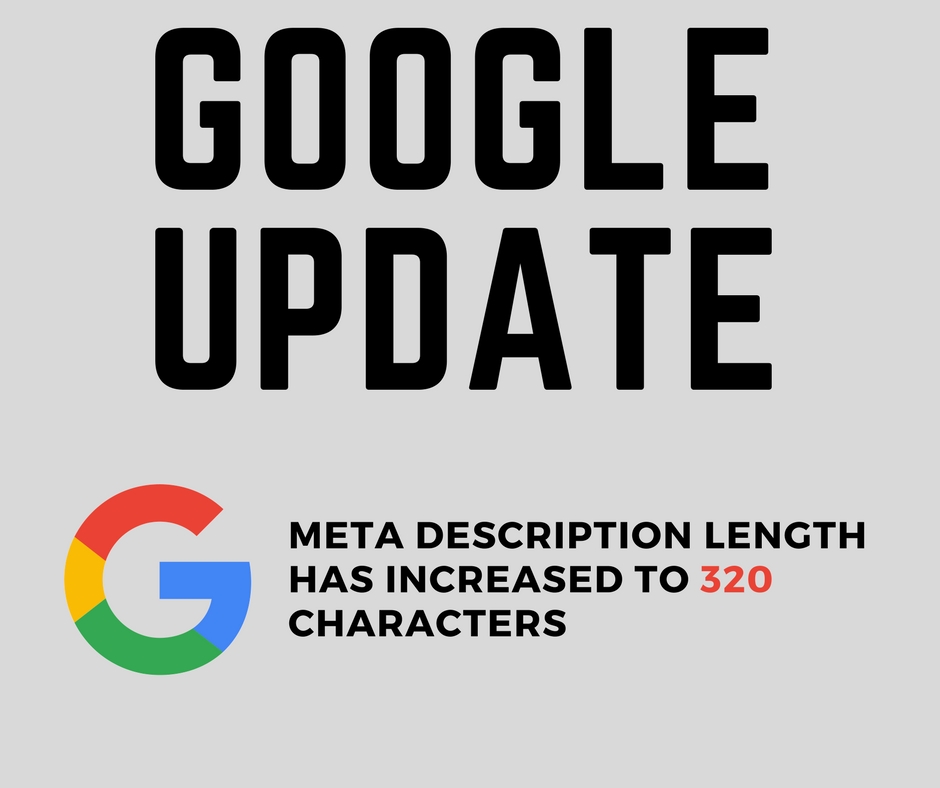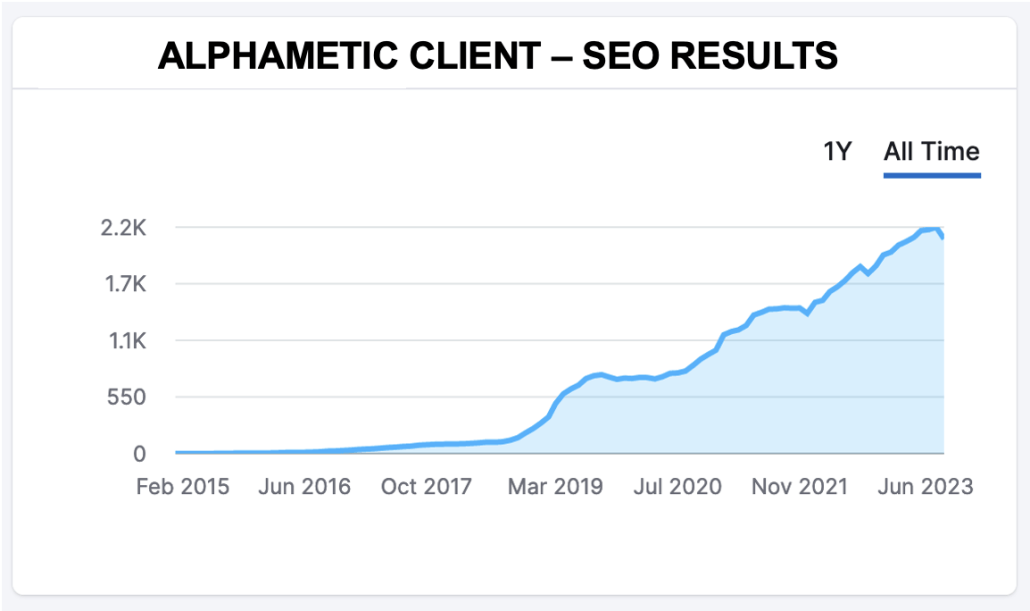Meta Description Length Has Increased to 320 Characters in Google. What’s next for SEO?

September 2018 Update: This meta description update has been reverted back to its original 145-165 character range limit. For more information regarding this update and the current status of meta data, refer to our Google Updates and SEO Trends 2018 post.
It’s official, Google has increased their meta description length to a max of 320 characters! Now, some of you may be saying “This is fantastic!” and the rest of you are probably saying “Oh crud…I have to update everything.”
Well, truth is, you’re both right. It IS a great opportunity to communicate more value to your target audience, but it’s also going to take a bit of work on your part to update your pages. Let’s talk about how this can affect your SEO efforts.
But first, let’s answer what’s on everybody’s minds:
How Does the New Meta Description Length Affect Rankings?
Meta descriptions are an INDIRECT ranking factor, what does that mean?
Google doesn’t actually count the keywords you put into your meta descriptions towards your SERP ranking. If you don’t have a pre-set meta description, it’ll just take a piece of your webpage that it thinks describes the intent behind the page the best.
Now, why it an indirect factor? At the end of the day, your meta descriptions for your webpages is like the “Hook” of an email. If an individual reading their email has gotten past the subject line, they’ll take a peek at the hook and, as you probably guessed, the “hook” reels them in towards actually clicking on the email.
It’s the same with your meta description. If the individual gets past the page title and hasn’t committed to clicking on it yet, they’ll further determine the utility behind your webpage based on the few seconds they’ll spend reading your meta description. If your meta description can get you more clicks, and therefore traffic and potentially conversions on your webpage, THEN those factors will start counting towards your ranking.
At the end of the day, Google will reward the web pages that consistently attract clicks from SERPs, solve users’ problems, and deliver value. Thus, strong meta descriptions can help improving your click-through-rates, which translates into better rankings and more traffic.
What’s an SEO to do?
Review your priority pages and their meta descriptions
This is an opportunity to enhance what you’ve already got. Determine how the extra length can add further value at a glance on SERP results.
Step 1: Review your Google Search Console data to identify the 20% of your web pages that drive 80% of your traffic.
Step 2: Expand your meta descriptions to include more descriptive, keyword-rich content that speaks effectively to your customers.
If you are offering SEO services to clients or working in-house on Internet marketing campaigns and looking for “quick wins,” consider adding this two-step approach to your marketing toolbox in 2018.
Optimize for click-through and use the extra space to give them what they want
Maybe add a call to action or an extra line of services you offer to drive click-throughs. Just think: a person looking for the keyword this page ranks is looking to answer what question? Your meta description should promise an answer.
Check out one of our meta descriptions written in the longer character limit below:

Utilize the extra space on all meta content moving forward
Now you get the opportunity to set a new standard for all future web pages and content. If you have a company-wide style guide that includes meta description standards, consider updating this information or just establishing a go-forward methodology with your team (or for yourself, if you’re a lone-wolf SEO).
As Bill Carmody says in this article on Inc aptly title “Google is Your Homepage”
“Like it or not, Google is your homepage. In fact, I’ll go one step further and confirm that you and your company are who Google says you are.”
He’s got a point. Many times, a google search result is the first interaction a person has with your brand. Let’s make it a good one.
At Alphametic, we follow SEO news and keep up to date with the industries latest stories. Want to see another update? Check out this article about the new Google Search Console Update.
Matthew Capala is a seasoned digital marketing executive, founder/CEO of Alphametic, a Miami-based digital marketing agency, author of “The Psychology of a Website,” dynamic speaker, and entrepreneur.




Leave a Reply
Want to join the discussion?Feel free to contribute!